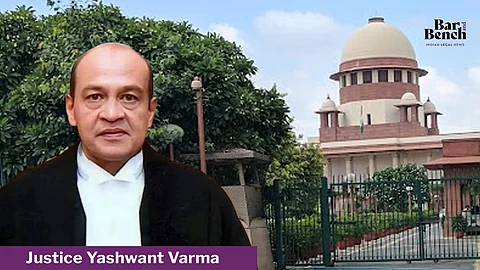
- Latest Legal News
- News
- Dealstreet
- Viewpoint
- Columns
- Interviews
- Law School
- Legal Jobs
- हिंदी
- ಕನ್ನಡ

The Supreme Court on Thursday dismissed the petition filed by Allahabad High Court Justice Yashwant Varma challenging the recommendation made by former Chief Justice of India (CJI) Sanjiv Khanna to impeach him over the recovery of a large sum of unaccounted cash at his official residence in Delhi.